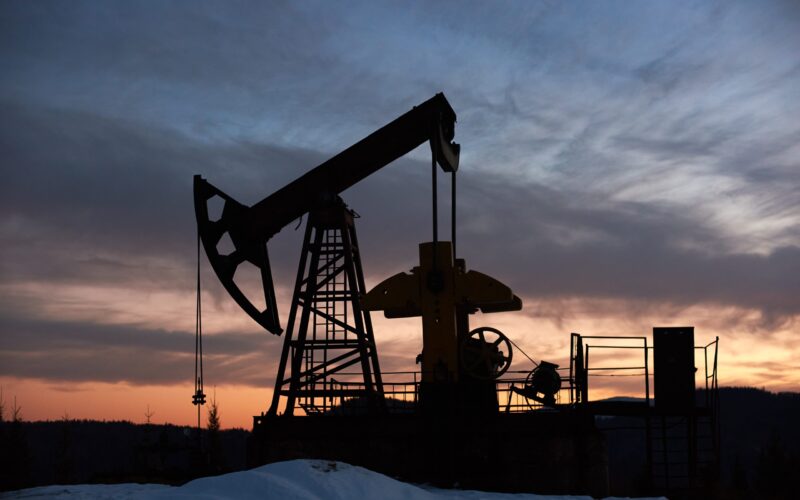The State Oil Company of Azerbaijan (SOCAR) has signed a series of agreements potentially worth over $8 billion in the year Azerbaijan is hosting the COP29 climate talks, according to a new analysis by Global Witness.
Since Azerbaijan was announced as the COP29 host, SOCAR has finalised 25 deals with foreign firms, a figure nearly three times higher than the $3 billion in contracts secured during the preceding 12 months. These agreements involve the production and delivery of billions of barrels of oil and gas.
This surge in dealmaking surpasses SOCAR’s activity in 2019, the last year before the pandemic, when the company struck $7 billion worth of exploration, purchase, and engineering agreements.
Global Witness analysed SOCAR’s agreements, including those pursued by its subsidiaries, using various data sources such as Rystad Energy’s M&A Analysis Dashboard, LSEG’s Deal Tracker service, and trade and commodity datasets.
The analysis calculated potential values for supply contracts based on disclosed volumes in official press releases and industry reports, cross-referencing with commodity price data from the month the deal was signed. For multi-year agreements beyond 2024, estimates were limited to a 12-month period due to commodity price fluctuations. Transactions with undisclosed or indeterminate values were marked as “unknown.”
Not all agreements finalised in 2024 have been concluded, with some negotiations still ongoing. However, Global Witness included these transactions, citing credible evidence of active negotiations during Azerbaijan’s COP29 presidency.
The findings highlight a pattern of petrostates leveraging UN climate talks—intended to curb greenhouse gas emissions—as platforms to secure fossil fuel agreements. Earlier this year, Global Witness revealed that the Abu Dhabi National Oil Company (ADNOC) sought $100 billion in oil and gas deals during the UAE’s hosting of COP28 in 2023.
Azerbaijan, which nominated Mukhtar Babayev, a former SOCAR executive, as COP29 president, appears to be following a similar strategy. The country has used the climate summit to bolster its fossil fuel ambitions, solidifying its role as a major player in oil and gas production while drawing criticism for undermining the goals of climate negotiations.
SOCAR is positioned to become the second-largest producer of new oil and gas globally, following at least 25 major agreements in 2024, covering gas supply, exploration, and its first foreign upstream acquisitions.
The deals signed by SOCAR in 2024 include a $468-million acquisition of stakes in gas projects in the UAE and the sale of a share of a Caspian Sea oil field to Hungary’s MVM for $1.5 billion.
Key deals include a $468 million acquisition of stakes in UAE gas projects and the $1.5 billion sale of a Caspian Sea oil field share to Hungary’s MVM. Notably, SOCAR’s 3% purchase of ADNOC’s Sarb and Umm Lulu fields marks its first-ever international production investment, granting access to 1.1 billion barrels of crude oil.
SOCAR’s dominant share in the Azeri-Chirag-Guneshi field, which contains approximately 2.4 billion barrels of oil, is projected to generate $14 billion in revenues over the next decade. Additionally, the company pursued gas supply deals with six countries and struck production-sharing agreements with Western majors, including BP.
“It seems as if each year we have another fossil fuel company using climate talks to pursue more oil and gas deals,” said Patrick Galey, Senior Fossil Fuels Investigator at Global Witness.
The surge in SOCAR’s activity coincides with Azerbaijan hosting COP29 and aligns with government plans to privatize parts of the company. In April, President Ilyan Aliyev, a former SOCAR executive, emphasized that Azerbaijan would continue exploiting its oil and gas reserves, calling them “a gift from the gods.”
Responding to increased EU demand for Azeri gas following Russia’s invasion of Ukraine, SOCAR is projected to produce 44% of new oil and gas by 2050, second only to Angola’s Sonangol at 46%, according to Global Witness.
Despite outreach, SOCAR, COP29 officials, and Azerbaijan’s Ministry of Foreign Affairs did not respond to requests for comment on these findings.
The UN and the IEA have emphasised that new oil and gas projects are incompatible with the Paris Agreement’s 1.5°C temperature target—a goal that COP hosts are obligated to uphold and which COP29 President Mukhtar Babayev has pledged to prioritise.
At COP28 last year, nearly 200 nations committed to “transition away from fossil fuels,” marking a significant acknowledgment—after nearly three decades of climate summits—of the destructive impact of oil, gas, and coal.
“While we didn’t end the fossil fuel era in Dubai, this was the beginning of its end,” said UN Climate Change Executive Secretary Simon Stiell at the conclusion of COP28. “Governments and businesses must now turn these pledges into tangible outcomes, without delay.”
Patrick Galey said, “With the climate crisis still getting worse each year, it seems as if each year we have another fossil fuel company using climate talks to pursue more oil and gas deals. COP29, which vulnerable nations are depending on to secure a path for a future they can survive, risks being co-opted by Azerbaijan’s state oil company. SOCAR’s aims – to produce vast quantities of oil and gas for decades – is directly opposed to the stated aim of UN climate talks.”
Galey added, “This conflict of interest is undermining progress towards the one thing we know will prevent climate breakdown: a rapid and fair phase-out of fossil fuels. Big polluters have no place in this discussion. We must kick them out of these talks before it’s too late.”





















